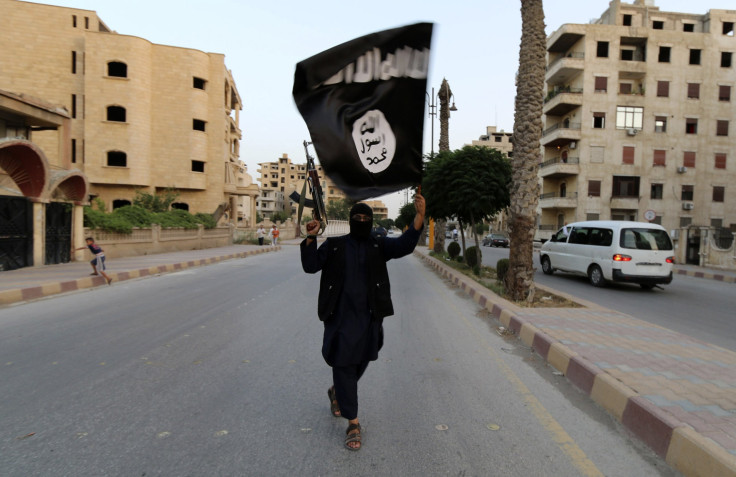India Arrests ISIS Sympathizer As Officials Deal With Growing Radicalization Among Local Muslims

Mehdi Masroor Biswas, a 24-year-old engineer and white-collar worker who was arrested in Bangalore on Saturday, is not the first Indian national to be influenced by the Islamic State group. Of late, several Muslim youth from various parts of the country have heeded ISIS' message for violent jihad.
In September, it was reported that four men -- Arif Majeed, Aman Tandel, Shahin Tanki and Fahad Sheikh -- from Kalyan, a town in India’s Maharashtra state, had joined the group and were operating in Syria. By November end, Majeed returned to India, and was arrested and handed over to the National Investigation Agency, which probes terror cases. Earlier in the year, it was reported that ISIS had been trying to spread its message across India by uploading propaganda videos in Hindi, Urdu and Tamil languages. In August, two men were reportedly arrested in the southern Indian state of Tamil Nadu for printing and selling ISIS T-shirts. In October, ISIS flags also surfaced in Kashmir as the state prepared to hold polls.
Biswas, according to Bangalore police, is the son of a retired public-sector employee with a steady job at ITC, one of India’s leading multinational companies. He matches the profile of several young, tech-savvy, well-educated and upwardly mobile Indian Muslim men who have been apprehended of late by agencies for either sympathizing with or being part of such fundamentalist terror outfits. One such notable example is that of Kafeel Ahmed, a Bangalore man who was one of the plotters of the 2007 bombing of Glasgow airport in the UK.
The radicalization of Indian Muslim youth has been on the rise in recent times, and Islamist outfits, eager to feed on the phenomenon, are keen to recruit cadres in the country. Al Qaeda has, in the recent past, said that it would expand its presence in India. On Sept. 3, al Qaeda chief Ayman Al-Zawahiri announced the formation of an Indian wing of the terror outfit. In a nearly hour-long video, al-Zawahiri said that besides India, the group will also wage jihad, or holy war, in Bangladesh and Myanmar.
Al-Zawahiri’s announcement came even as Indian agencies had been claiming significant successes against threats from domestic groups, especially the Indian Mujahideen (IM), which first shot to prominence nearly six years ago. IM is one of the most significant terrorist organizations to have become operational in India in recent times.
In the past year, India’s federal government as well as various state police forces have announced a slew of arrests of important IM members, the latest among which was of Aijaz Shaikh, in September. In August last year, the federal home ministry had announced the arrest of Muhammad Ahmad Zarar Siddibappa, also known as Yasin Bhatkal, co-founder of IM, which, till date remains the most significant arrest from the group.
Moreover, instances of communal violence have been on the rise in India. According to annual data released by the Indian government, published in August this year, instances of communal rioting rose by 25 percent in 2013. Government data further show that until September this year, 66 Muslims and 41 Hindus had been killed in communal clashes.
Several factors including a perceived persecution of Muslims, who make up a little over 13 percent of the population in India, and the six-decade old India-Pakistan rivalry over the state of Jammu and Kashmir, has led to several Indian Muslims turning to jihad. And, according to this report in The Hindustan Times, Islamic radicalization is not a new phenomenon in India and goes as far back as 1989, when a Hyderabad resident, Abdul Aziz, was motivated to jihad in Saudi Arabia.
Later events, including, most notably, the demolition of the Babri mosque by right-wing Hindu groups in the city of Ayodhya in December 1992 and the 2002 Hindu-Muslim riots in the western Indian state of Gujarat, have only deepened the sense of alienation among several Indian Muslims.
Whatever its actual assessment of the threat perception, the Indian government, at least for the record, appears unfazed, though somewhat cautious. Soon after al Qaeda's announcement, India’s federal home minister Rajnath Singh, while dismissing fears that al Qaeda and ISIS were recruiting from India, had said: “I can say that India has the ability to meet the al-Qaeda’s challenge.”
Last month, however, he sounded more cautious. Singh reportedly told Indian police officials that the country cannot remain unaffected by ISIS' activities.
"There are some misguided youth who are getting attracted to join organizations like the ISIS. We are concerned about the youngsters who are getting drawn to IS," he reportedly said.
On Saturday, the Indian government also announced the appointment of Dineshwar Sharma as the new chief of the country's Intelligence Bureau. Sharma will take charge of the internal intelligence agency on Dec. 31, replacing S.A. Ibrahim, the first Muslim person to head a spy agency in India. And, according to reports, India is also expected to appoint a new head for its external spy agency, the Research and Analysis Wing (R&AW), over the next few days.
© Copyright IBTimes 2024. All rights reserved.





















